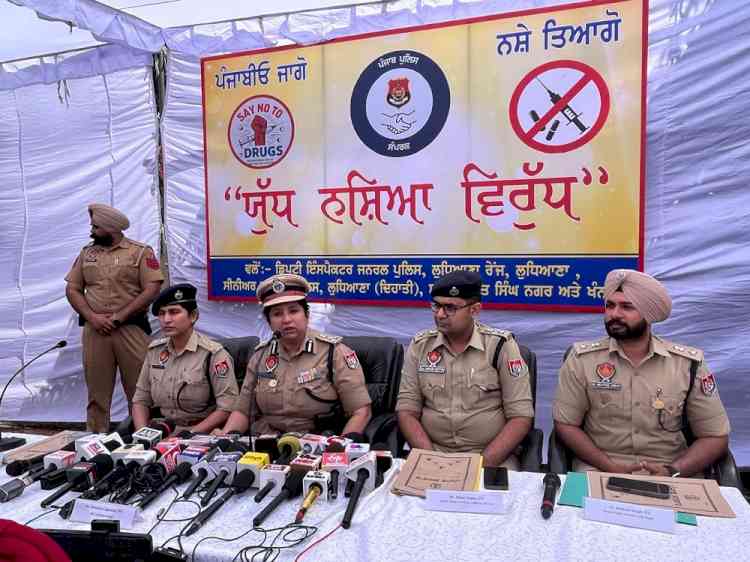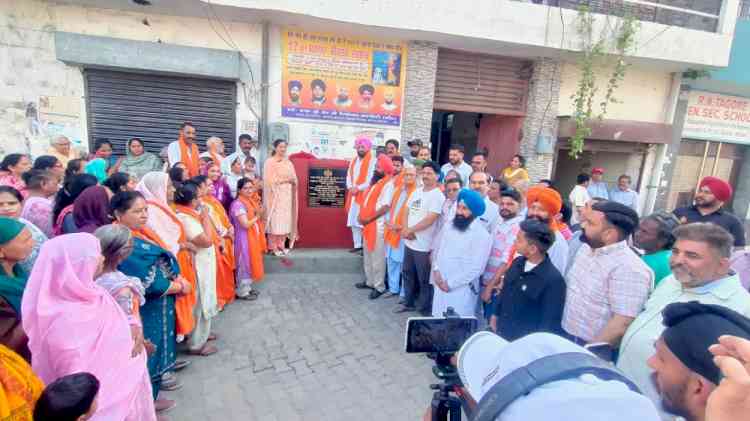Capt Amarinder writes to Modi for review of 3 recent ordinances on farming sector
Urges him to relook in spirit of `cooperative federalism’, in interest of farmers

Chandigarh: Expressing Punjab’s reservations on the amendments, Punjab Chief Minister Captain Amarinder Singh on Monday urged Prime Minister Narendra Modi to review the three recently issued central government ordinances related to the farming sector, in the interest of the farmers, and taking into account the spirit of `cooperative federalism’ which the letter has always strongly championed.
Underlining the need for the Centre and States to work together to secure the collective good of the people of the country, who reside in the States, the Chief Minister has, in a letter to Modi, sought a reconsideration of the three ordinances - for permitting trade in agricultural produce outside the physical boundaries of the set-up of the agricultural market under APMC Act, easing of easing restrictions under the Essential Commodities Act, and facilitating contract farming. All three should be revisited keeping in view the concerns and the interests of the farmers, said Captain Amarinder, seeking protection of the farmers’ interests at all times.
The Chief Minister pointed out that Punjab has been at the forefront of ensuring food security for the country. The development of crop production technology for wheat and paddy as well as its dissemination, supported by the assured procurement at minimum support price (MSP) by FCI in the notified markets, has played a key role in building up buffer stocks and making the country self-reliant, he stressed The results of this policy, observed Captain Amarinder, were most visible in the recent past when the country was able to face the unprecedented crisis emanating from the Covid-19 pandemic with confidence, with no threat of hunger and food deprivation.
Further, the Chief Minister pointed that Agriculture is a subject entrusted to States by the makers of the Indian Constitution and features at entry 14 on the State List. On the other hand, Trade and Commerce feature in entry 33 of the Concurrent List, which enables both the Union and States to legislate on the subject provided the State legislation, is not repugnant to the legislation of the Union.
Referring to the specific ordinances, the Chief Minister said the Agriculture Produce Marketing System in Punjab had stood the test of time and served the State and the country well over the last 60 years. It had in fact been an important contributor to the success of the ‘Green Revolution’, he said, adding that it had helped in ensuring food security on the one hand and securing livelihoods of millions of farmers and farm workers on the other. Further, he pointed out that a well-developed infrastructure has also been created in Punjab, both for open marketing and storage of produce and seamless transportation of produce from farm-gate to mandis and godowns. The State Government is in the process of further upgrading this infrastructure to support modern farming and agri-marketing practices, he added.
However, the changes as per the Ordinance dated June 5, 2020, in the agricultural marketing system, had led to widespread apprehension among the farmers of the State that the Union Government was planning to withdraw from the assured procurement of food grains produced by them. He said that there was also another apprehension that the proposed barrier-free nation-wide markets for farmers would really come to mean a nation-wide market for traders, possibly to the detriment of the already debt-ridden and beleaguered farmers of the State. Coming as it does in the times of the unprecedented Covid-19 crisis, it will further exacerbate the socio-economic tensions among the farmers of the State, said the Chief Minister, adding that this would not at all be conducive for the peace and development of the region, which faces serious challenges of public order due to a live international border.
Drawing the Prime Minister’s attention to 'The Farmers’ Produce Trade and Commerce (Promotion and Facilitation) Ordinance, 2020', Captain Amarinder said that it permits new marketing channels outside the APMC domain and has, thus, far-reaching implications for the States, particularly Punjab. He asserted that Punjab had already amended its APMC Act, 1961 to provide for a single unified license and setting-up of private market yards for direct purchase from farmers. Further, the State APMC Act deals only with the first transaction between farmers and the buyer and does not interfere with trade in any manner.
He said that the levies/fees charged by APMCs are used for the development and management of mandis, the creation of rural marketing, and supporting infrastructure, as well as for the welfare of rural farming and non-farming communities. It is a matter of common understanding that entry 33 of the Concurrent List i.e. “trade and commerce in, and the production, supply and distribution of the products…”, is applicable only to foodstuffs such as raw cotton, jute, oilseeds, etc., which are industrial raw materials and not to food grains, fruits, and vegetables, he said, adding that there thus appears to be no rationale to infringe upon the APMC Act or for that matter, the autonomy of the States enshrined in the Constitution within the time-tested federal framework.
Further, leaving the millions of small and marginal farmers in the country, who could neither hold their produce for a long time after harvest for the market to be favourable nor had the bargaining power to best realize a remunerative price in a free market, the Chief Minister said leaving such famers at the mercy of organized trade will only increase the possibility of their exploitation by the traders.
On the easing of regulation of food-grains under the Essential Commodities Act, Captain Amarinder said it further allows the exporters, processors or traders to hold large stocks of farm produce without limits, except in certain grave situations of war, natural calamity, famine, and extra-ordinary price rise. The amendment would allow the private players to buy the produce in harvest season, when prices are generally lower, and release it later when prices firm up. He stated that in the absence of any regulation, States would also have no information about the availability of stocks of commodities within the State.
Captain Amarinder Singh further pointed out that ‘The Farmers (Empowerment and Protection) Agreement on Price Assurance and Farm Services Ordinance, 2020’ provides for engagement of farmers with processors, exporters, and large retailers for farm services and sale of future production at a mutually agreed remunerative price. But, it largely pertains to contract farming and provision of services. As these services and contracts relate to agricultural produce, it is covered under entry 14 read along with entry 26 and 27 of the State List and cannot be treated simply as a matter of trade and commerce under entry 33 of the Concurrent List.


 cityairnews
cityairnews 








